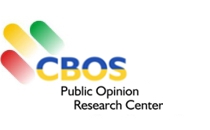| LATESTPUBLICATIONS Polish Public Opinion December 2022
 | Politicians of the year 2022
|
 | Evaluation of the year 2022
|
 | Long-term effects of COVID-19
|
 | Opinions about education
|
"Opinions and Diagnoses"no 48
Young Poles in CBOS Surveys 1989–2021
no 49
Youth 2021
no 50
Secularisation in Poland
Reports | Opinions about Parliament and President in January
|
 | Social Moods in January
|
 | Moods on the Job Market in January
|
 | Trust in Politicians at the Beginning of the Election Year
|
 | Poles about War in Ukraine and Ukrainian Refugees
|
 | Attitude to Government in January
|
 | Year of War - The Most Important Event of the Year 2022 for Poland and for the World
|
 | On Inflation and Public Finance
|
 | Outside the Blocs and Coalitions - Support for Political Parties if They Were Running Independently
|
 | Poles about Nicolaus Copernicus
|
 | Activities and Experiences of Poles in 2022
|
|
|
Rise in Anxiety about Covid-19
| Ever since last March the percentage of respondents saying they were not worried about catching the coronavirus has remained higher than those for whom it was a concern. Despite this long-range decrease in anxiety levels, since December there has been a rise of 7 percentage points in those who are concerned about getting infected, from 31% to 38%. Of these, every tenth person said they were very worried.
| The scale and degree of this anxiety is primarily age-related; the older the respondents, the more frequent and acute their fear of Covid infection. Thus, it is people of 55 and over who are most worried: 55% of the 55–64 age group and 60% of those who are older. Women report this concern more frequently (45%) than men (30%).
| |
| More on this subject in the CBOS report.
| This ‘Current Events and Problems’ survey (393) was conducted using a mixed-mode procedure on a representative sample of named adult residents of Poland, randomly selected from the National Identity Number (PESEL) register. Respondents independently selected one of the following methods: Computer Assisted Personal Interview (CAPI); Computer Assisted Telephone Interview (CATI), respondents receiving researchers’ telephone numbers in an introductory letter from CBOS; Computer Assisted Web Interview (CAWI), where respondents filled in the online questionnaire independently, gaining access by means of a login and password provided in an introductory letter from CBOS. In all three cases the questionnaire had the same structure and comprised the same questions. The survey was carried out between 9 –22 January 2023 inclusive on a sample of 1028 people (59.5% using the CAPI method, 21.8% CATI and 18.7% CAWI). CBOS has been conducting statutory research using the above procedure since May 2020, stating in each case the percentage of personal, telephone and internet interviews.
|
|



